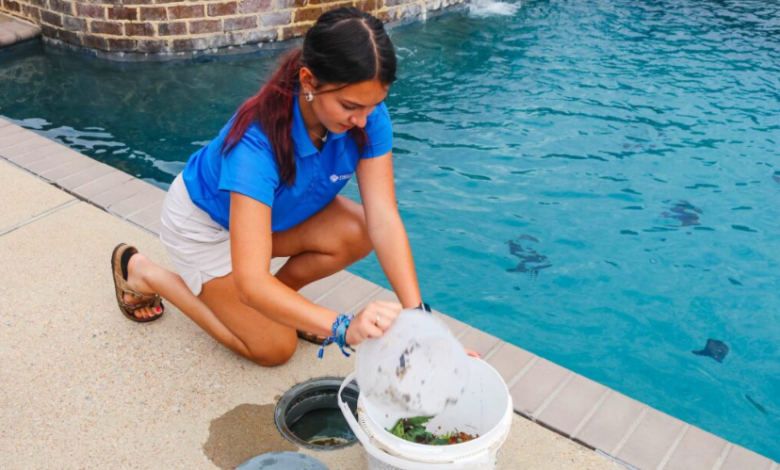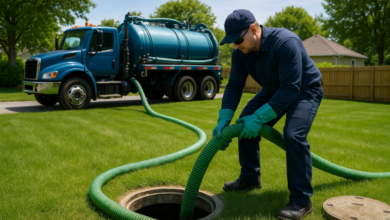Keeping It Clear: The Smart Homeowner’s Guide to Pools

Owning a pool is one of life’s great pleasures—especially under the Sunshine Coast sun. But between salty sea air, heavy rains, and the area’s intense UV rays, keeping your pool sparkling clean takes more than a few scoops of chlorine. Whether you’re managing your own maintenance or working with professionals, knowing how to care for your pool the smart way makes all the difference. That’s where your local pool shop in Maroochydore comes in, offering expert advice, the right products, and tailored support for local conditions.
Understanding the Sunshine Coast Environment
Maroochydore’s coastal weather is a blessing and a challenge. Long stretches of warmth keep swimming seasons extended, but those same conditions also accelerate chlorine burn-off and algae growth. Add in the fine sand carried on sea breezes and the occasional nutrient-rich storm, and pool water chemistry can shift overnight.
That’s why local expertise matters. Staff at your nearby pool shop, Maroochydore, understand how these conditions affect your pool’s balance. They stock chlorine stabilizers that protect against intense UV rays, phosphate removers for storm season, and corrosion-resistant parts built for salty air. Their insights come from seeing the same weather patterns—and the same pool problems—you do, every day.
The Essentials of Pool Water Health
The heart of pool care is water testing. Most quality shops offer in-store tests for chlorine, pH, total alkalinity, calcium hardness, stabilizer (CYA), phosphates, and sometimes even metals or salt levels. They’ll interpret the results for you, explaining whether you need to add acid to drop your pH, buffer to lift alkalinity, or a phosphate treatment to prevent algae blooms.
Ideal levels for a Sunshine Coast pool often look like:
- Free chlorine: 1–3 ppm (up to 4 ppm after heavy use or rain)
- pH: 7.2–7.6
- Alkalinity: 80–120 ppm
- Calcium hardness: 200–400 ppm
- Cyanuric acid: 30–50 ppm (60–80 for saltwater pools)
- Phosphates: As low as possible—below 0.2 ppm is ideal
Checking these numbers regularly prevents most major water issues before they begin. Even with a home test kit, it’s wise to bring a sample to the shop every few weeks for a complete diagnostic.
Equipment That Works Hard So You Don’t Have To
Modern pool systems are more intelligent, quieter, and more efficient than ever. A good store will stock and service:
- Variable-speed pumps for energy savings and whisper-quiet operation
- Cartridge and media filters suited to coastal dust and fine debris
- Saltwater chlorinators with self-cleaning cells designed for high use and humid conditions
- Robotic cleaners that handle sand, leaves, and fine silt after windy days
They’ll also have every small spare part you could need—O-rings, baskets, gaskets, and pressure gauges—to prevent minor problems from ruining your weekend swim.
Balancing DIY Care with Professional Help
You can handle a lot of maintenance yourself with a steady routine. Spend about 20 minutes, twice a week, skimming debris, brushing walls, and checking chlorine and pH. Keep your pump running long enough for full circulation, clean filters when needed, and inspect your salt cell regularly.
Still, some jobs call for professionals. If your water remains cloudy despite correct chemistry, if the pump’s making strange noises, or if your salt cell isn’t producing, it’s time for expert attention. Technicians can recalibrate chlorinators, detect leaks, and bring even the greenest pools back to life.
See also: Yell51x-Ouz4 Model: Yell51x-Ouz4 Model: Key Features and How It Works
Seasonal Pool Care for the Sunshine Coast
- Spring & Summer: Increase filtration time, watch stabilizer levels, and dose weekly algaecide to prevent blooms. Robotic cleaners can help keep dust and debris from settling.
- After Storms: Lower the water level if heavy rain is expected, clear baskets, boost chlorine output for 24 hours, and retest pH afterward. If the pool turns dull, a clarifier or flocculant can quickly clear it.
- Winter: Don’t switch off completely—just reduce chlorinator output and run your pump for about 4–6 hours daily. Add a monthly algaecide and consider a pool cover to cut evaporation.
Common Problems and Smart Fixes
If your pool fades from blue to green, check for high phosphate levels—often caused by leaves or runoff. A shop will recommend a shock treatment, a phosphate remover, and continuous filtration until the water clears.
For rust-colored or turquoise stains, metals like iron or copper may be the culprit. Sequestrants and stain removers can treat the issue before it damages the surface.
White crusty scale on tiles or salt cells usually signals high calcium or pH levels, which can be easily managed by rebalancing and occasionally acid-cleaning the cell.
Choosing a Pool Partner You Can Trust
When picking a store or technician, ask:
- Do they test water on site and provide a printed plan?
- Can they demonstrate energy savings from a variable-speed pump?
- Do they offer repairs or loan equipment during service?
- Are their recommendations tailored to your pool size and exposure?
A great pool shop builds trust, not just transactions. They’ll educate you, support you year-round, and help you make informed, cost-effective choices.
The Clear Path Forward
Owning a pool should be relaxing—not a chemistry experiment. With local advice, quality equipment, and consistent care, your water can stay crystal clear no matter what the Sunshine Coast throws at it. Whether you’re new to pool ownership or simply want fewer hassles, rely on your pool shop, Maroochydore, to guide you through every season, every storm, and every swim.




